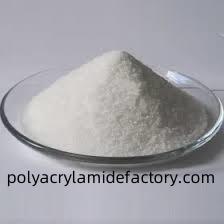How Can Industrial And Urban Wastewater Treatment Protect Communities Effectively?

Water is life, and yet industrial and urban development places increasing strain on natural resources. Industrial And Urban Wastewater Treatment is no longer just an operational requirement — it is a vital element of environmental responsibility. From rivers winding through cities to lakes supporting local ecosystems, clean water impacts communities, agriculture, and wildlife alike.
Imagine a city where untreated wastewater flows unchecked. Health risks escalate, biodiversity suffers, and everyday life becomes compromised. Modern treatment facilities act as guardians, ensuring that water leaving factories or urban centers is safe and sustainable. The process combines science with care, turning potential hazards into opportunities for reuse and conservation.
Beyond safety, proper treatment strengthens community confidence. Citizens can trust that water systems will not pose hazards to recreation, drinking water, or urban ecosystems. Urban planners rely on wastewater treatment to maintain harmony between development and environmental stewardship. Industrial operators also benefit by enhancing public perception, reducing environmental liability, and demonstrating commitment to sustainability.
Hengfeng contributes by offering solutions that reduce chemical usage, optimize filtration, and accelerate contaminant removal. Advanced techniques such as flocculation, sedimentation, and clarification transform challenging wastewater into reusable water streams. Each improvement in efficiency has far-reaching effects, conserving energy, minimizing waste, and safeguarding ecosystems.
Additionally, treated wastewater can support resource recovery. Agricultural irrigation, industrial cooling, or even landscape maintenance can utilize reclaimed water, conserving fresh water and reducing pressure on natural supplies. This circular approach exemplifies how innovation in wastewater management aligns with sustainable living goals, improving quality of life across urban and rural areas.
Community engagement is another critical aspect. Informing citizens about treatment benefits fosters trust and encourages participation in sustainable practices. Awareness campaigns can highlight the environmental and economic advantages of treated water, showing how every stage of the process contributes to a healthier, more resilient ecosystem.
Flexibility in treatment is key. Industrial wastewater varies greatly in composition, while municipal wastewaters fluctuate based on population, weather, and seasonal activity. Systems designed for adaptability ensure that treatment remains effective regardless of changes in flow or pollutant concentration. This reliability supports continuous environmental protection and reduces operational interruptions.
Ultimately, Industrial And Urban Wastewater Treatment is not only about technology; it is about responsibility. It embodies the commitment of industries and municipalities to protect natural resources while ensuring operational efficiency. Every step, from initial design to advanced monitoring, contributes to safer, cleaner water for communities and ecosystems alike.
Learn more about solutions that combine environmental impact with efficiency at https://www.polyacrylamidefactory.com/news/industry-news/how-industrial-and-urban-wastewater-treatment-can-improve-with-cationic.html
- Art
- Causes
- Crafts
- Dance
- Drinks
- Film
- Fitness
- Food
- Games
- Gardening
- Health
- Home
- Literature
- Music
- Networking
- Other
- Party
- Religion
- Shopping
- Sports
- Theater
- Wellness


